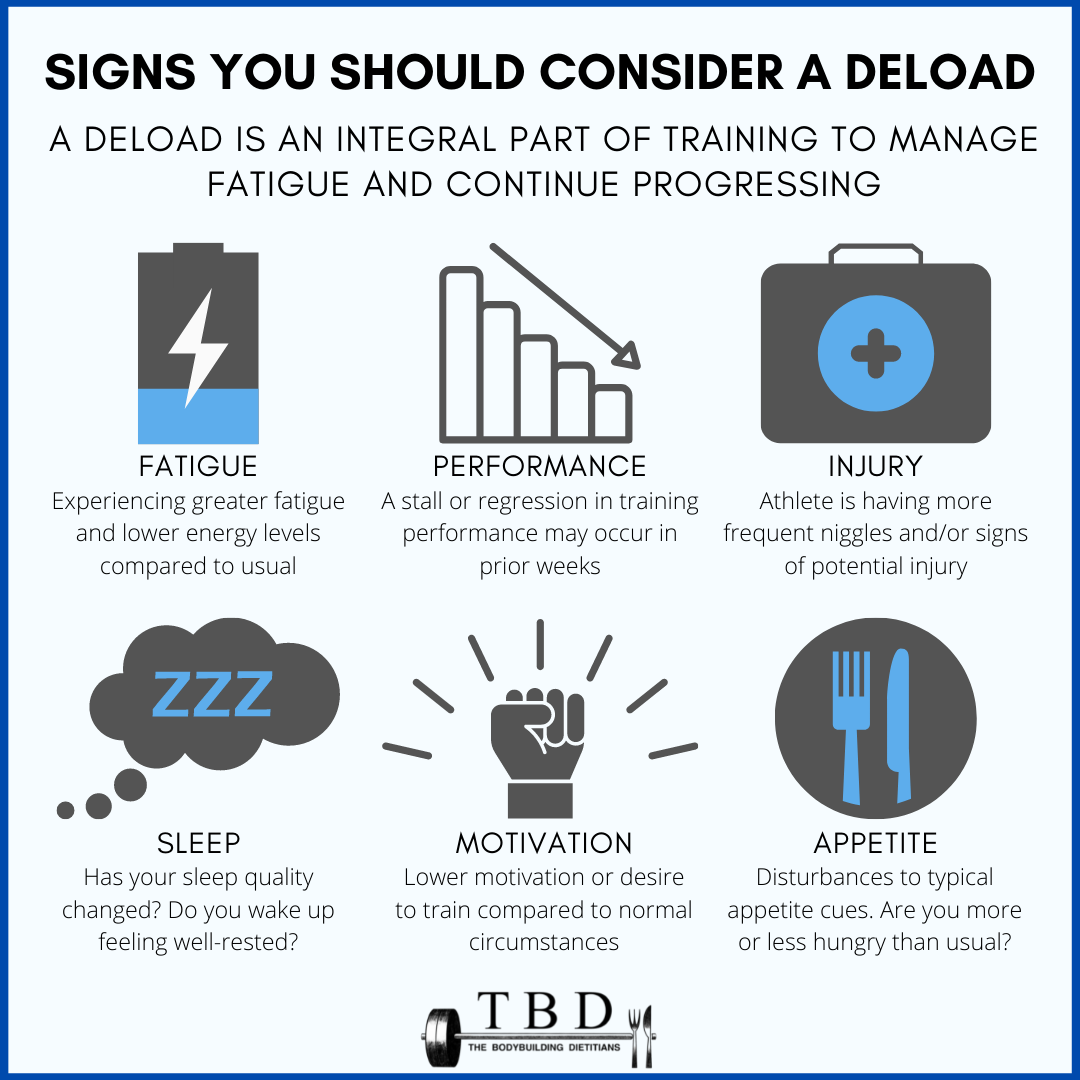A deload is usually warranted after an individual has progressively overreached at the end of a 6+ week training block. This week often involves a reduction in normal training volume and intensity. It aims to reduce systemic fatigue, risk of injury, promote overall recovery, and prepare an individual both mentally and physically for their next training block. In order to maximise rate of progression in the gym and prevent the risk of injury or burn-out, deloads should be considered a fundamental and pre-planned component of your training.
Signs that you may need a deload could include a combination of the following:
- Inability to further progress training performance, and possible performance regression
- Significant daily fatigue and/or injury "niggles"
- Elevated resting heart rate and/or changes in heart rate variability
- Disturbances in sleep and appetite
- Lack of motivation to train
There is no one, universally “correct” way to approach a deload, as different methods work for different people. The primary goal of a deload is to reduce systemic fatigue and recover mentally and physically from a challenging training block and feel rejuvenated to begin the next one! Therefore, if your method of deloading achieves this you’re fine!
Deloads could be coincided with an “active recovery week” where perhaps you’re on holiday or travelling, moving house/apartments, or a week where you just decide to take it easy in the gym. Bear in mind however that total training volume (in terms of working sets) contributes significantly more to inducing systemic fatigue amongst bodybuilders compared to training intensity. Therefore, during a deload, consider dropping your normal set volume by ~50%, whereas intensity generally only needs to drop by ~0-25% (more for compounds, less for isolation work). Also, deloads can be a great opportunity to trial new movement patterns that you might want to include in your next mesocycle, without the pressure to push intensity from the get-go!
Take note that deloads may not be necessary for everyone depending on frequency, intensity, and consistency of training. Therefore, keep working hard if you aren’t experiencing any of these signs!
